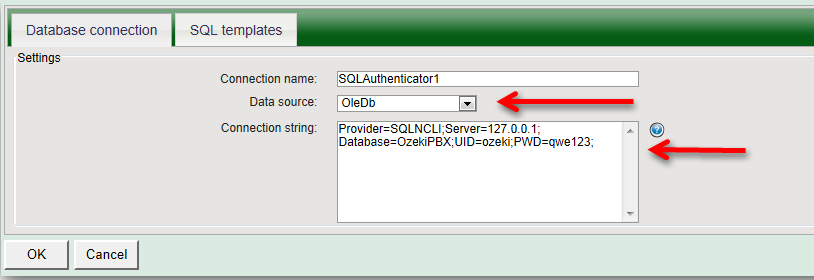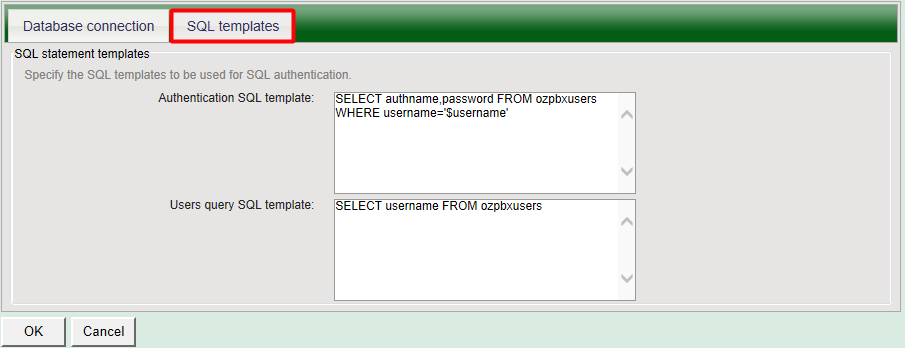Setup Oracle for logging PBX events
In this chapter you can learn how to log PBX events of Ozeki Phone System using a Oracle database server. In this guide you can see the installation steps, the database connection string, the database connection type and the recommended database table layout for Oracle database.
During the configuration you should choose the following database connection type:
You should use the next database connection string properly for your OleDB driver:
The database connection string have to be modified to match your database. You should use the IP address or the hostname of your database server instead of the "127.0.0.1". Replace "OzekiPBX" to the name of you database and replace "ozeki" and "qwe123" to the username and password that can be used to connect to your database server.
The connection string and the connection type should be entered on the Database Logging SQL API configuration form.

In the following figure you can see the SQL templates tab of the Database logging API. Here, you need to provide the SQL queries that will store PBX events.

After the Database Logging SQL API has been configured in the Ozeki Phone System, you need to create the database tables for Database Logging SQL API. Use the following table layout:
-- -----------------------------------------------------
-- Table `OzekiPBX`.`ozpbxlog`
-- -----------------------------------------------------
CREATE TABLE ozpbxlog
(
id integer PRIMARY KEY,
Time timestamp NOT NULL,
Thread integer NOT NULL,
LogLevel varchar(20) NOT NULL,
Logger varchar(255) NOT NULL,
Message nclob NOT NULL,
)
CREATE SEQUENCE id_seq START WITH 1 INCREMENT BY 1;
CREATE OR REPLACE ozpbxlog_insert
BEFORE INSERT ON ozpbxlog
FOR EACH ROW
BEGIN
SELECT id_seq.nextval INTO :new.id FROM dual;
END;
/
If you have any questions or need assistance, please contact us at info@ozekiphone.com.
Dig deeper!
People who read this also read...
